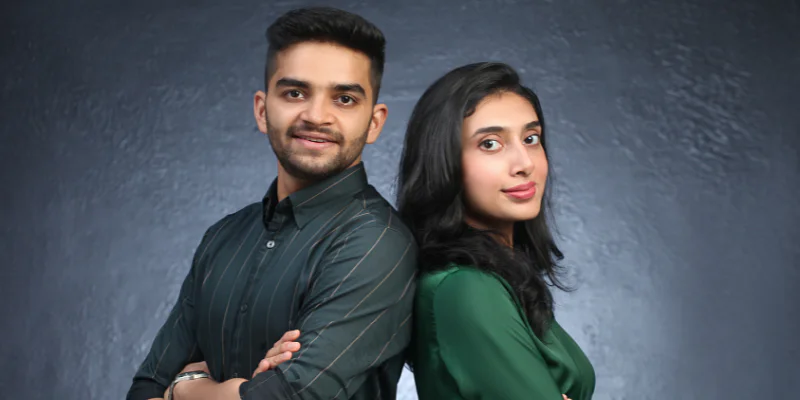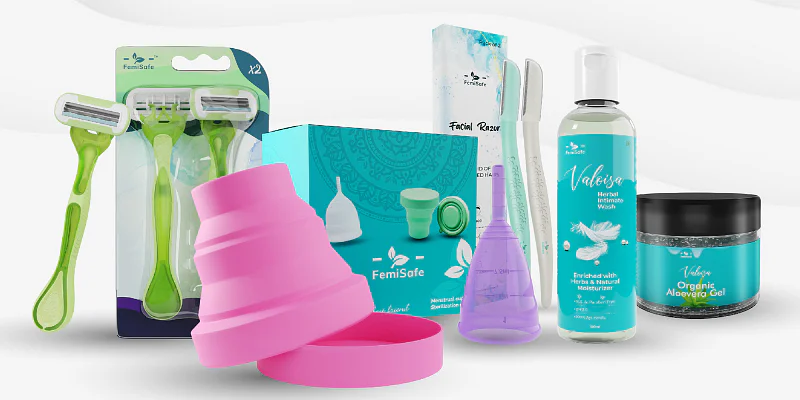KERALA :

Recently, the Women Start-up Summit 4.0 was organized by the Kerala Start-up Mission (KSUM). The special thing is that a large number of young entrepreneurs from Tier 2 and Tier 3 cities participated in this conference and presented their innovative ideas to the audience.
Naureen Ayesha is one of the hundreds of women entrepreneurs who attended the conference in Kochi. Naureen and her husband Nasif Nazar’s start-up Femisafe is a Femitech company, the idea of which came up during one of their conversations.
Naseef Nazar has worked in the fields of Software, HR, and Marketing. In 2020, he too ventured into entrepreneurship.
At the conference, Naureen said that ‘operating from non-metro cities like Kochi also means having a smaller footprint’. However, the products that Famisafe offers are very generic, so Naureen believes that smaller markets are a better option to make a mark before expansion.
In fact, during the Covid-19 pandemic, the couple noticed that the sanitation workers had to pick up sanitary pads from the garbage. Those days, even janitors would come once a week due to the Covid lockdown.
Naureen said in one of her interviews, “It was horrifying to see bloody pads being lifted with bare hands. Sanitation workers had to separate the gel from the plastic so that the waste could be processed.”
At the same time, Nasif advised Naureen to work on creating awareness among women for use of menstrual cups in place of sanitary pads because these could be reused for several years and is also cost-effective. Most importantly, these don’t end up in garbage dumps for the sanitary workers to clean up.

Naureen worked on the idea and in 2020 Femisafe became a reality.
The tagline of Femisafe – The best friend of women – thus contributes to women’s hygiene. Besides menstrual cups, the company has also launched menstrual cup sterilizers, intimate washes, face razors, body razors, and skin care.
Naureen and Naseef have focused on making inroads into the smaller markets that have been neglected by the big companies, i.e. Tier 2 and Tier 3 cities. In that too, South India is their priority. Through Femisafe, Naureen is not only offering quality products to women but is also spreading awareness about their hygiene, especially during their periods.
Naseef said their company’s focus is more on South India as they have a more cultural understanding of the region.
According to an estimate, 12.3 billion sanitary napkins are used annually in the country and nearly half of the women of India are unable to get disposable sanitary napkins.
While the use of sanitary napkins is a good hygiene practice, their disposal poses health and environmental hazard.
In these circumstances, products like menstrual cups are becoming increasingly popular. Dr. Sonil Singh says, “Among products like tampons, napkins, etc., menstrual cups are the best as these are comfortable and also environment-friendly.”

Naureen Ayesha writes on her website: “Right now we are reaching out to a section of the society through social media. We are constantly trying to make them aware and for this, we are also organizing seminars, workshops, and sessions.”
According to Naureen, Femisafe is now preparing to enter the market with menstrual cramp patches, health supplements, and products for skin care, mouth care, and baby care.
Femisafe sells its products in small towns and runs campaigns to get the attention of college students, working professionals women, and mothers. Most of FamiSafe’s sales are through Amazon, Flipkart, and its website.
Femisafe products are also available in leading pharmacies in and around Kochi. Currently, the startup has an ARR of Rs 1 crore with an investment of Rs 30 lakh. Naureen handles R&D, HR, and product development while Naseef looks after marketing, branding, and finance. The venture is part of the Wadhwani Foundation Liftoff and the Stanford Seed Spark Accelerator Program.
Naureen writes, “The biggest challenge in this business is to spread awareness because this case is like this. There is a taboo regarding menstrual hygiene in society and people do not like to talk about it. Social media has helped a lot in tackling this challenge. Social media is a great platform to unite people, through which we can eliminate these taboos and inertia.”
source:http://www.awazthevoice.in / Awaz, The Voice / Home> Women / by Manjit Thakur, New Delhi / December 23rd, 2022








